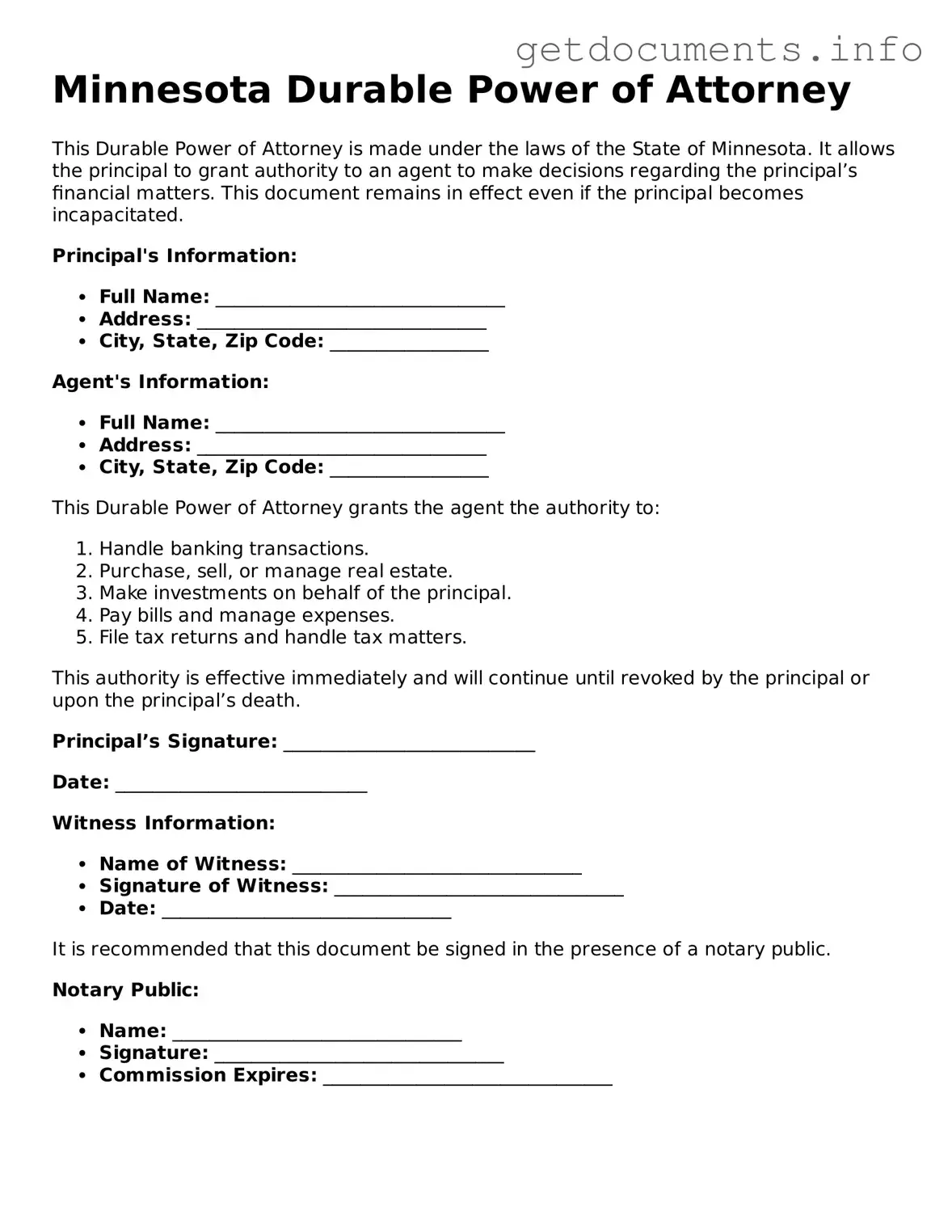Free Durable Power of Attorney Template for Minnesota
A Durable Power of Attorney in Minnesota allows you to appoint someone to make decisions on your behalf if you become unable to do so. This legal document remains effective even if you become incapacitated, ensuring your wishes are respected. To get started on filling out the form, click the button below.
Access Durable Power of Attorney Editor

Free Durable Power of Attorney Template for Minnesota
Access Durable Power of Attorney Editor
Got places to be? Complete the form fast
Fill out Durable Power of Attorney online and avoid printing or scanning.
Access Durable Power of Attorney Editor
or
⇩ PDF File
